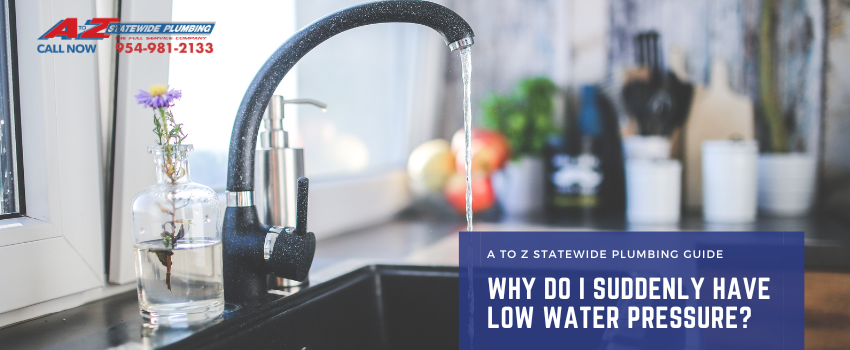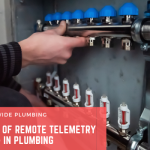
Picture this: you’re standing in your shower, eagerly anticipating a relaxing cascade of water, only to be greeted with a feeble trickle. Low water pressure can be frustrating, disrupting your daily routines and leaving you scratching your head in confusion. In this blog post, we will explore some common reasons why you might suddenly experience low water pressure in your home and shed light on how A to Z Statewide Plumbing can help you restore that steady flow you deserve.
Sediment Buildup in Pipes
Over time, mineral deposits, sediment, and rust can accumulate inside your plumbing pipes. This buildup restricts the water flow, resulting in reduced water pressure. If you live in an older home with galvanized pipes, they are more susceptible to corrosion and sediment accumulation. A thorough inspection by a professional plumber can determine if sediment buildup is the culprit behind your low water pressure.
Leaky Pipes
Leaky pipes not only waste water but can also lead to low water pressure. Even small leaks can significantly reduce the water flow, affecting various fixtures throughout your home. If you notice damp spots, water stains, or hear the sound of running water when all taps are off, you might have a hidden leak that requires immediate attention.
Faulty Pressure Regulator
Pressure regulators play a crucial role in maintaining a stable and safe water pressure in your home. When the pressure regulator malfunctions, it can cause inconsistent water pressure. A plumbing professional can assess the regulator’s functionality and make necessary adjustments or replacements to restore the proper water pressure.
Partially Closed Valves
Sometimes, the solution to low water pressure can be surprisingly simple. Check all the water supply valves in your home, including those near individual fixtures and the main water valve. If any of these valves are partially closed, it can restrict the water flow and lead to low water pressure. Ensure all valves are fully open to allow maximum water flow.
Water Heater Issues
Your water heater can also be a factor in low water pressure. A failing water heater might struggle to provide adequate hot water, causing the overall water pressure to drop. Additionally, sediment buildup in the water heater can reduce its efficiency and negatively impact water pressure. A plumber can inspect your water heater, flush it if needed, and address any issues to restore proper water pressure.
Municipal Water Supply Problems
In some instances, the cause of low water pressure lies outside your property. Municipal water supply issues, such as main line breaks or routine maintenance, can temporarily lead to reduced water pressure in your home. If you suspect this is the case, contacting your local water utility can provide insight into any ongoing problems.
Experiencing sudden low water pressure can be a perplexing and inconvenient situation for any homeowner. However, by understanding some common reasons behind this issue, you can take proactive steps to restore your home’s water pressure.
While simple fixes like checking for closed valves can be attempted on your own, it’s essential to consult a professional plumbing service like A to Z Statewide Plumbing for a comprehensive evaluation and resolution of low water pressure problems. Their experienced plumbers can accurately diagnose the root cause, whether it’s sediment buildup, leaky pipes, a faulty pressure regulator, water heater issues, or any other underlying problem. With their expertise and state-of-the-art equipment, they can efficiently address the issue and restore your home’s water pressure to its optimal state.
Remember, low water pressure can be a symptom of more significant plumbing issues, so timely intervention by a professional is crucial to prevent further damage and ensure a steady and reliable water supply in your home.






